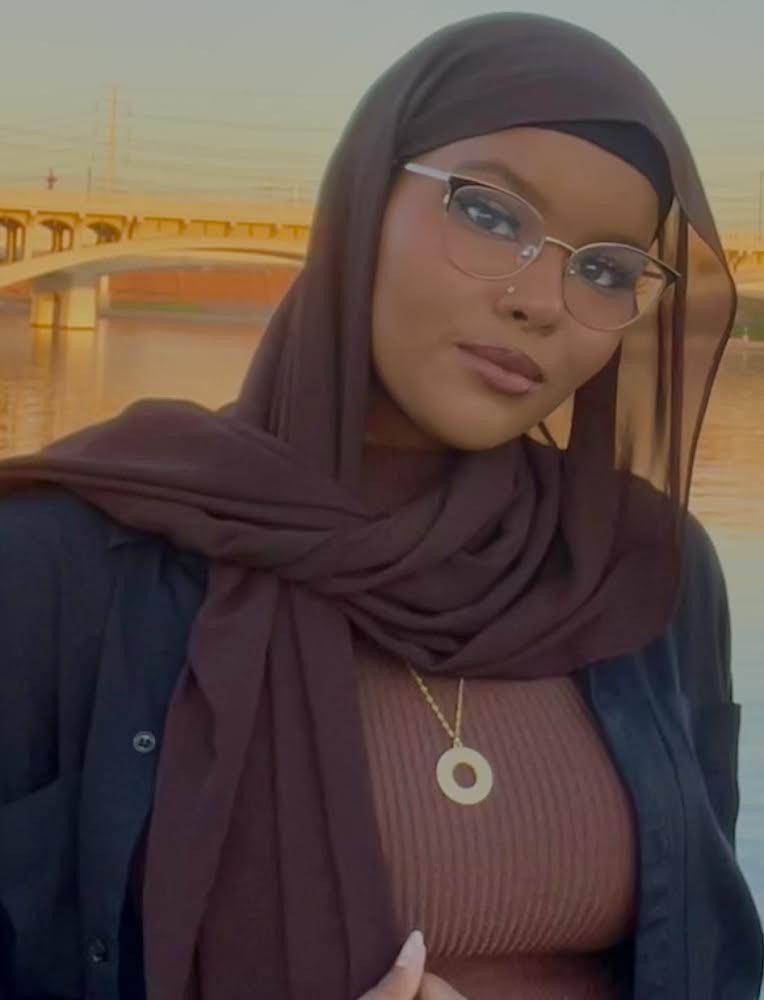Advocacy through Storytelling
A college student uses her voice to fight for others

My name is Elwaad Samatar. My mother is from Djibouti and my father is from Somalia. My father first came to the United States when he was 17, after a period of war in Somalia and after being separated from the majority of his family members. He began his college degree but had to put a halt to his progress in 2001 after the 9/11 attacks. Because his name is Muhammad, he experienced a lot of racism in college at the end of 2001 and he decided to drop out of school and move to Djibouti, where he married my mother. My mother was a French teacher at the time, but after they had their first child, my older brother, they decided to move back to the United States.
They were both determined to succeed in their new home, and excited to be in the US. My father already spoke English, and my mother wasn’t going to let a language barrier prevent her from doing regular things. She started learning English by watching TV and going to community college. She did several courses at community college until my twin sister and I were born. We were born in Arizona. That is where I grew up.
When I was young, my family started a garden in our yard. It turned into a kind of community garden as time went on. We would exchange vegetables with neighbors, things like zucchini or kale. I really loved our garden because it was a great environment for me to find peace. Whenever I was stressed I would go out and water the garden and it was really helpful for me.
Now as an adult, I study global health. My family background has really influenced what I have chosen to study. I think about Somalia, where my father is from, and I know that because it’s a developing country there is a need for better healthcare over there. I am also very interested in women’s health, and the issues that exist in that field, such as female genital mutilation. I learned about this issue in high school, and I was astounded because there isn’t a specific reason for why this is happening to women. It is simply a cultural practice, and I don’t think culture should be used as a reason to excuse this kind of gender-based violence. Female genital mutilation has a negative impact on the health of women and can cause painful health outcomes in their future.
At my university, I am the president of a club that advocates for justice and teaches about these kinds of issues. I’ve enjoyed volunteering and interning for various organizations whose goals are to combat these types of issues and help people have access to safe places and safe health resources. I believe that through advocacy and storytelling, we can help people from all over find better opportunities, especially refugees. We can highlight the contributions that refugees make to society and help people see these people differently. We can help open people’s minds.
For example, one time, during Easter, our neighbors brought us a beautiful Easter basket. It was the first time my family had received a gift like that from someone, and it allowed us to connect with our neighbor in a new way. It was a precious interfaith moment for my family, and taught us a new way to connect with others. People from different backgrounds and cultures can make good neighbors.
Our team members obtain informed consent from each individual before an interview takes place. Individuals dictate where their stories may be shared and what personal information they wish to keep private. In situations where the individual is at risk and/or wishes to remain anonymous, alias names are used and other identifying information is removed from interviews immediately after they are received by TSOS. We have also committed not to use refugee images or stories for fundraising purposes without explicit permission. Our top priority is to protect and honor the wishes of our interview subjects.